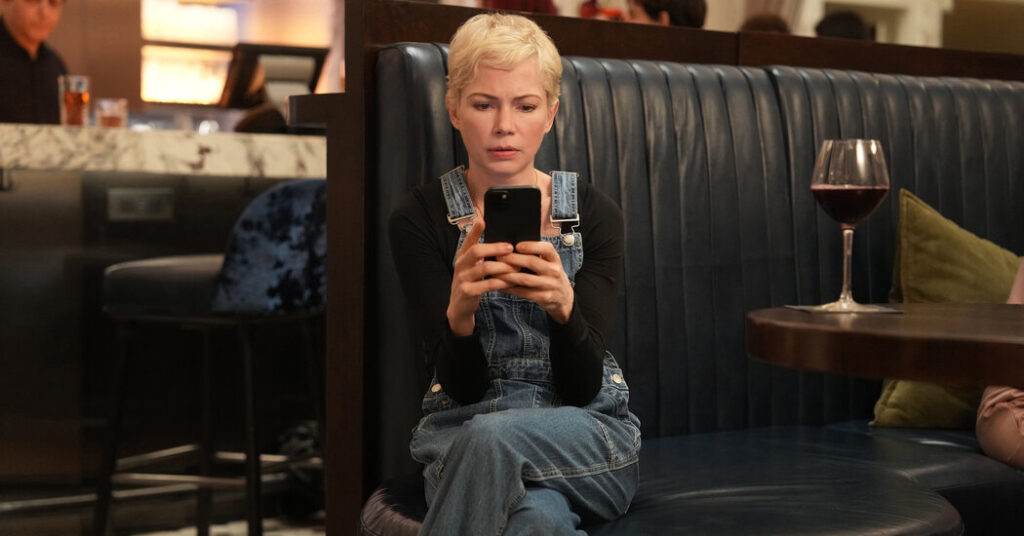“Probably when I was canvassing for Obama, like ’06,” he says.
Later, while enjoying some humiliation play in her neighbor’s apartment, Molly picks up a photo. “Is this your dad?” she spits. “How did such an attractive man produce such a [expletive] like you?”
“That’s not my dad,” he says. “That’s Bill DeBlasio.”
Cancer is what ends Molly’s life, but being sexually abused as a 7-year-old by her mother’s boyfriend is what poisoned it. She’s haunted by the abuse. The man’s ghostly figure appears in her peripheral vision while she’s hooking up, and her relationship with her mother (Sissy Spacek) is fraught at best. Molly has to accept having cancer and she has to reject the shame of abuse. She practices telling people — partners, doctors — how, when, where and with what they are allowed to touch her. Among her last words are “my body did a good job.”
For all the ways “Dying for Sex” is transgressive and audacious in its frankness about pain and pleasure, it can also feel awfully generic. Slate’s Nikki is an actress, so of course the play she’s in is eye-rollingly pretentious; she’s disorganized and chaotic, so of course she has a giant black hole of a purse. Repressed, self-conscious straight white women getting Sherpa-ed into liberation through the enlightened guidance of queer characters felt a little fresher on “Shrill” or “Somebody Somewhere.”
But as Sherpas go, “Dying” has a great one: Jouléy is an understated knockout as Sonya, who feels like a real person while other characters, like Nikki, feel more like characters. Delaney’s performance has the perfect amount of sexual and social charisma — he towers over Williams, but it is she who dominates him, and we’re never afraid for Molly’s safety even as she becomes weaker and weaker in his presence.
In the finale, Paula Pell plays a hospice worker who explains to Molly how dying works, what it will feel like, how her body will know what to do. It’s an extraordinary monologue in a lot of ways, unfussy but not coldly clinical, demystifying but also in its way mystical. What’s more ordinary than having a body, than having sex, than dying? Or maybe, what’s more extraordinary?
https://www.nytimes.com/2025/04/04/arts/television/dying-for-sex-review.html


